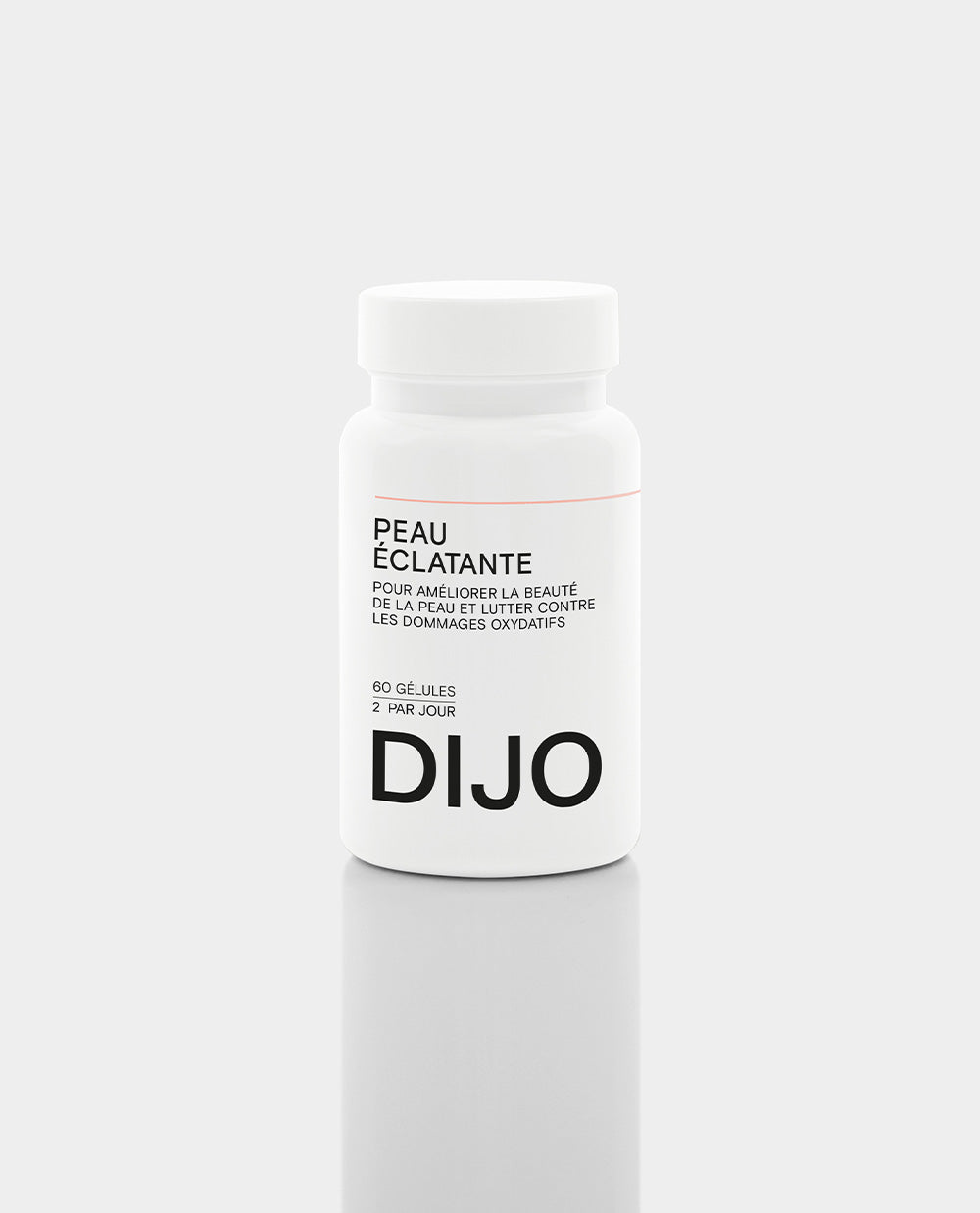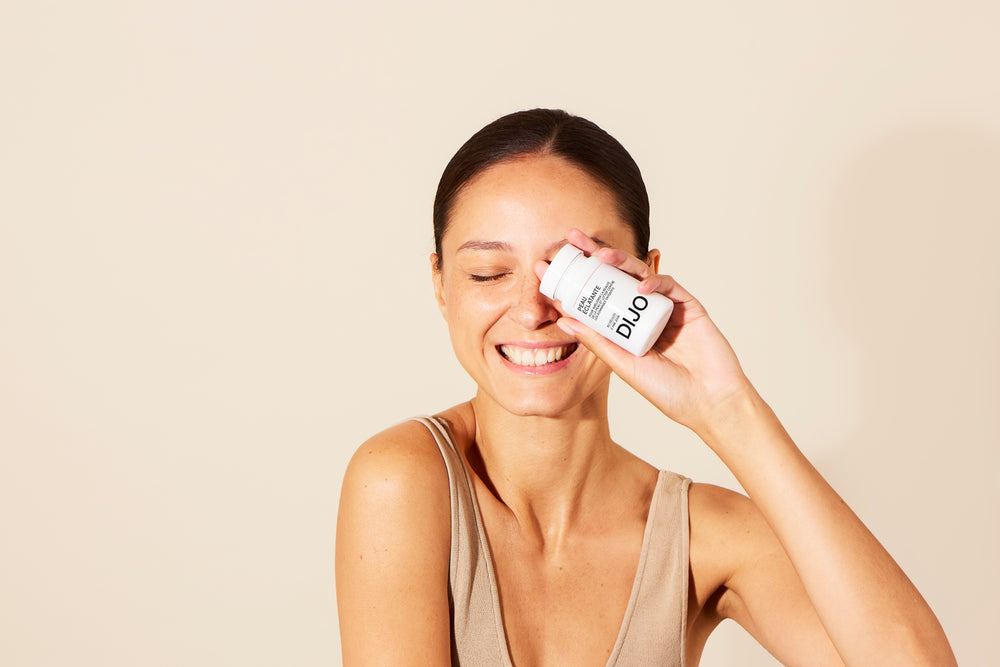What to remember:
- Acne is a complex disease with very diverse causes.
- Just like the intestinal microbiota, there is a cutaneous microbiota at the skin level which acts as a barrier against pathogens.
- In people suffering from acne, dysbiosis of this microbiota as well as that of the intestine is commonly observed.
- The gut-skin axis indicates that there are many correlations between these two flora and that one can impact the other.
- Regulating or relieving certain signs of acne can therefore involve balancing the intestinal flora.
What is acne?
Acne vulgaris is the most common type of acne found in the population. It is a follicular disease characterized by distension of the follicles and a keratinous plug. This plug may be due to hyperproliferation of keratinocytes. These are cells that make up 90% of the superficial layer of the skin (epidermis) and appendages (nails, hair, feathers, scales).
This type of acne occurs mainly on the face and upper chest. It is characterized by the presence of redpimples , blackheads and pustules on the skin . There are also other types such as reactive, nodular or cystic, hormonal, inflammatory and many others.
Acne usually occurs in adolescence at the onset of puberty but can also occur in adulthood.
It is important to remember that it is essential to consult a dermatologist if you suffer from acne in order to determine the cause and best adapt the treatment.
More and more studies are looking into the origins of these different acne conditions, and a true gut-skin axis has been identified. Digestive acne, indicating that a digestive disorder is the cause of skin problems, is therefore one of the topics to study to understand the link between diet and skin.
The causes and origins of acne
#1 - Puberty
Just like digestive acne, hormonal changes during puberty can cause the sebaceous glands to produce more sebum. The hormones most involved in this phenomenon are the so-called male androgen hormones. This is why boys are more likely to suffer from this type of skin problem.
#2 - Heredity
Links have been established in the scientific literature between the occurrence of acne and acne present in other relatives of the same family. Indeed, having this skin disease in the family would increase the risk of developing acne. However, this disease is not considered hereditary; it can simply, through genetic transmission, present a greater risk of development if relatives are already confronted with it. This can be the cause of hormonal, reactive, inflammatory acne, with a digestive origin or not.
#3 - An underlying pathology
Certain conditions such as PCOS (polycystic ovarian syndrome) characterized by significant hormonal fluctuations, more specifically the overproduction of androgen hormones, can lead to the occurrence of acne. Indeed, it is one of the symptoms of this disease but can also occur in other people suffering from hormonal, inflammatory or immune pathologies. Indeed, this can sometimes result from an unbalanced microbiota and be the cause of digestive acne.
#4 - A treatment
Continuous use of certain medications can cause hormonal and metabolic changes while altering the intestinal and skin microbiota, which can ultimately lead to acne. Medications that can cause this type of skin reaction include:
- Sex hormones such as testosterone, estrogen, some birth control pills, etc.
- Some antidepressants
- Cortisone derivatives
- Lithium
- Immunosuppressants
- Some antibiotics
- Antiepileptics
The skin microbiota: a fascinating ecosystem serving the well-being of the skin
The skin microbiota is one of our body's primary barriers, providing protection against potential pathogens. It consists of a wide variety of protective microorganisms such as bacteria, viruses, fungi, archaea, and mites.
At birth, this microbiota is sterile and is gradually formed thanks to maternal and external bacteria, just like the intestinal microbiota. Some bacteria have very specific actions against defined pathogens. Indeed, there is, for example, Staphylococcus epidermidis, a real bulwark with bactericidal action against Staphylococcus aureus.
Again, just like the intestinal microbiota, certain microorganisms are capable of modulating the production of immune molecules, thus promoting good healing and regeneration of the skin.
Gut-skin axis: link between intestinal and skin microbiota
How does the gut microbiota influence skin health?
The gut-skin axis is increasingly being studied, as numerous studies hypothesize the involvement of the gut microbiota in maintaining skin health and, therefore, the skin microbiota. Indeed, these studies support the idea that these two floras communicate through modulation of the immune system and the inflammatory response.
In addition, dysbiosis of the intestinal microbiota is commonly observed in acne patients as well as an increase in intestinal permeability. This results in an alteration of the intestinal wall , creating intestinal porosity , allowing toxic and pathogenic compounds to pass through. This can be the cause of inflammatory responses and poor communication with the skin microbiota. Indeed, good bacteria allow the production of beneficial compounds for the body called short-chain fatty acids, which maintains homeostasis, i.e. the correct balance, of the skin flora.
Likewise, this alteration of the intestinal microbiota can be the cause of metabolic disorders that can promote the occurrence of acne or worsen it.
The role of diet in the occurrence of acne
We know more and more that an imbalance in the diet can be the cause of a disruption of the intestinal microbiota . This can ultimately cause, as mentioned above, dysbiosis as well as intestinal hyperpermeability . Indeed, excessive consumption of industrial, ultra-processed products, rich in compounds that are toxic to the body (additives, processed sugar) and a depletion of raw products, rich in nutrients and fiber can lead to a weakening of the intestinal microbiota and prevent the proper development of beneficial bacteria. In addition, if the diet is depleted of fibers with a prebiotic effect, these bacteria will not be able to ensure their proper development and functioning. This is why opting for a diet rich in fermented products providing good microorganisms, fiber and overall a balanced and diversified diet is essential to ensure good digestive functions by supporting the digestive system , strengthening the immune system , regulating hormonal functions and thus promoting a strengthened and effective skin microbiota for optimal skin health.
Sources :
[1] Causes of acne, Vidal, consulted from https://www.vidal.fr/maladies/peau-cheveux-ongles/acne/causes
[2] Sánchez-Pellicer P, Navarro-Moratalla L, Núñez-Delegido E, Ruzafa-Costas B, Agüera-Santos J, Navarro-López V. Acne, Microbiome, and Probiotics: The Gut-Skin Axis. Microorganisms. 2022 Jun 27;10(7):1303. doi:10.3390/microorganisms10071303. PMID: 35889022; PMCID: PMC9318165.
[3] Jung GW, Tse JE, Guiha I, Rao J. Prospective, randomized, open-label trial comparing the safety, efficacy, and tolerability of an acne treatment regimen with and without a probiotic supplement and minocycline in subjects with mild to moderate acne. J Cutan Med Surg. 2013 Mar-Apr;17(2):114-22. doi:10.2310/7750.2012.12026. PMID: 23582165.
[4] Salem I, Ramser A, Isham N, Ghannoum MA. The Gut Microbiome as a Major Regulator of the Gut-Skin Axis. Front Microbiol. 2018 Jul 10;9:1459. doi: 10.3389/fmicb.2018.01459. PMID: 30042740; PMCID: PMC6048199.




















